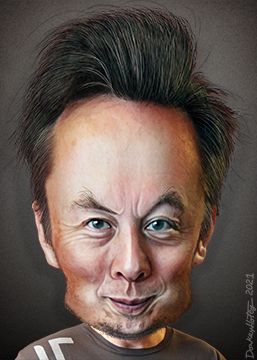By Dr. Jennifer Mercieca
“Twitter hasn’t been a business,” George Rasley wrote at Conservative HQ about Matt Taibbi and Bari Weiss’s “Twitter Files” revelations, “it has been a political operation. From the beginning, its only product was the power to establish and control political narratives.”
Rasley would like for us to accept his framing of the Twitter Files controversy: he wants us to think of Twitter as a “political operation” masquerading as a business. Twitter’s business, he claims, is “the power to establish and control political narratives.” It absolutely is, but this is not at all shocking or surprising.
It’s a stretch to call what we’ve learned so far about the behind-the-scenes content moderation decisions at Twitter proof of a “political operation,” but Rasley’s take on the controversy does reveal something useful about frame warfare.
Frame warfare is the way that propagandists battle to control how we think about things, events, people, and political controversies. You might think that propaganda is limited to controlling what we think, but dark arts practitioners know that controlling how we think about things is just as important as controlling what we think about.
Political framing is a lot like taking a photo. If you’re taking a photo of the Grand Canyon or Claude Monet’s Water Lilies, it’s impossible to capture the entirety of what you see. Instead, you will limit how reality is represented by what you choose to include in the frame. The act of framing a photo is never neutral because it distorts reality by showing certain bits while hiding others. The same is true for political framing.
Political frames highlight and hide how we understand reality, but they also work at a deeper level to shape how we think. Linguists George Lakoff and Elisabeth Wehling explain that frames structure and enable our thoughts. Our brains process most incoming information in ways that are inaccessible to our conscious minds—“reasoning that we don’t notice, don’t reflect upon, and cannot control.” Repeated exposure to a frame changes how our brains process information. The more a frame is repeated to describe reality, the more “sticky” it becomes, the more fluently our brains process it, the more we think within the parameters of the frame, and the more positively we think of the thing being framed.
Conversely, according to Lakoff, if new information can’t easily fit into your brain’s pre-existing conceptual structures, then your brain often rejects it, and you’ll soon forget that information. You can’t fight a dominant frame with evidence. Your brain’s frames don’t care about other frames’ facts or their feelings—it rejects anything that doesn’t conform with its existing frame structures.
Because all of this information processing occurs pre-cognitively (prior to conscious thought), we are mostly unaware that we’ve adopted a particular frame—we can’t see how our brains have highlighted and hidden how we perceive reality unless our attention is explicitly drawn to examining frames.
We are all vulnerable to framing effects, which is why so much of our political discourse is frame warfare—the battle to control how we think about things.
Another recent example of political frame warfare comes from Texas Governor Greg Abbott, who wants us to think the nation is being invaded at the southern border. If a politician frames an issue like “border security” as a “humanitarian crisis,” for example, that’s very different from framing it as an “invasion.” The issue (border security) itself changes depending on whether you think of it as a humanitarian crisis or an invasion—different facts will seem more salient, different emotions will become associated with the issue, and different courses of action will seem more or less prudent.
There’s much at stake because embedded within any frame is a bundle of values, assumptions, histories, and policies. Adopting a frame (humanitarian crisis v invasion) essentially ends the debate over that issue, which is why propagandists try so hard to control not just whether or not we think about border security at all but how we think about it.
Much of our political discourse—whether in speeches, news reports, or on social media platforms like Twitter—is actually a battle over controlling which frame dominates any particular issue. But, just like how our brains adopt frames without our conscious awareness, the frame warfare in our politics is hardly ever acknowledged or interrogated.
For example: is border security really either a humanitarian crisis or an invasion? Is there some more neutral way of thinking about it (perhaps an unresolved policy dispute?) that doesn’t activate so many polarizing assumptions, values, and actions? Of course, there is. But dark arts communicators don’t want us to think about that—activating a frame is the quickest route to manipulating minds, which makes it a powerful rhetorical trick. It’s better for them if we never pull back the curtain to see how they use frames to control how we think.














